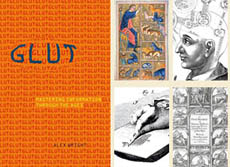Buddha on the brain
November 27, 2006
Salon is running an interview with Alan Wallace, discussing the relationship between Buddhism and neuroscience. Wallace makes the case that while Buddhism may not be exactly a "science," modern science has itself taken on a kind of religiosity that ultimately limits its perspective.
...
I'm not saying we should fuse religion with science. Rather, we should select very specific methodologies from Buddhism and other contemplative traditions where the ability to monitor the mind has been honed over thousands of years -- beginning with the training of attention and then using sophisticated methods for investigating the nature of the mind, feelings and the very nature of consciousness itself during the waking state, the dream state, even during deep sleep. Now, because of the great advances in transportation and communications, we have easy access to the Taoist tradition of China, the Sufi tradition of the Near East, the Buddhist tradition of Tibet and Southeast Asia. I'm convinced this would add much greater depth and breadth to the types of questions that are raised in modern cognitive science.
File under: Dharma
_____________________« Thanks for the boogie ride | Greek Gearheads »
GLUT:
Mastering Information Through the Ages
New Paperback Edition
“A penetrating and highly entertaining meditation on the information age and its historical roots.”
—Los Angeles Times
